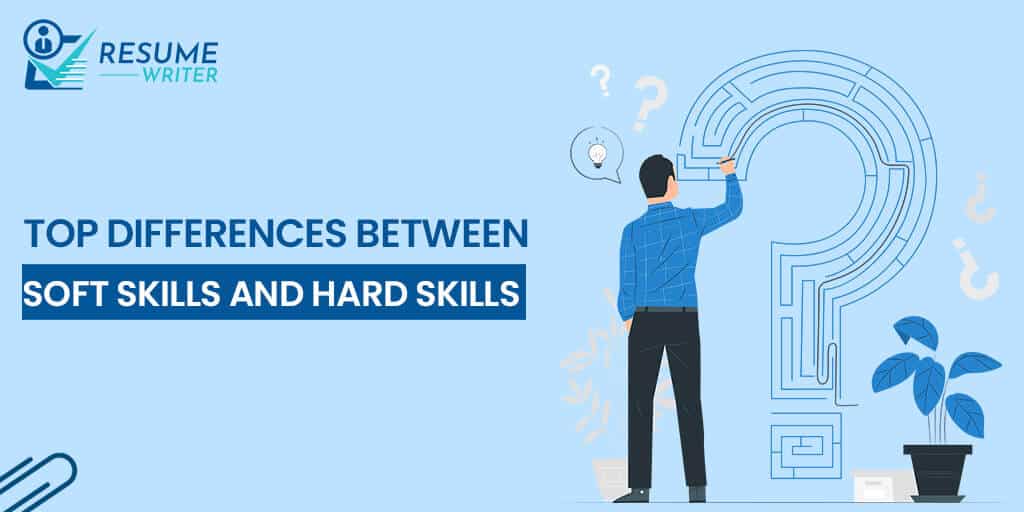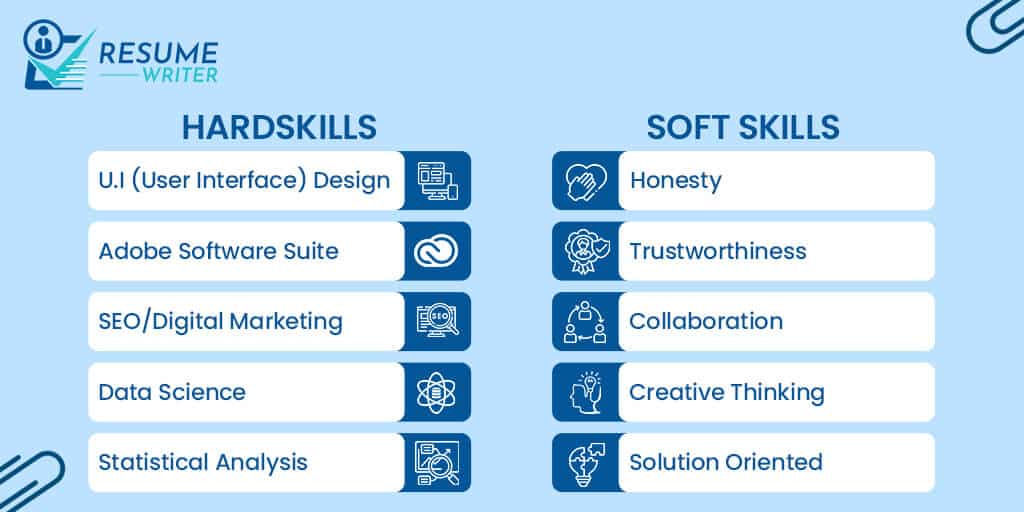
Top Differences between Soft Skills and Hard Skills
Soft skills and hard skills are two different categories of skills that employees and job candidates possess. While hard skills relate to specific technical knowledge and abilities, soft skills refer to a person’s social, emotional, and interpersonal qualities. Both hard and soft skills are crucial for career success, but they serve different purposes in the workplace.
In this article, we will explore the top differences between soft skills and hard skills, and why both are essential for success in the modern workforce.
What Are Hard Skills?
Every position calls for a specialised set of industry-specific technical talents. You will need to know how to utilise drafting software if you wish to work as an architect, for instance. A licence for architects is also required by the National Council of Architectural Registration Boards. The NCARB manages the Architectural Registration Examination, a battery of exams that architects must pass to demonstrate their proficiency in many technical areas.
These assessments, which demand prior knowledge and abilities necessary for job success, are in place in many other areas. Other employers could be willing to provide on-the-job training for certain technical skills.
Hard skills refer to specific, measurable abilities that are often learned through formal education or training programs. They are typically related to a particular job or industry and can be quantified or demonstrated through performance evaluations or certifications.
Examples of hard skills include computer programming, data analysis, accounting, technical writing, and engineering.
Hard skills are generally easier to measure and evaluate than soft skills because they often have specific qualifications, certifications, or tests associated with them.
Hard skills list
- All programming languages for example python, java, ruby, C++, Perl, etc.
- U.I (user interface) Design
- Adobe software suite
- Management of Network security/ Cyber Security
- SEO/Digital marketing
- Marketing campaign management
- Data mining/ trading
- Mobile or software development
- Statistical analysis
- Database management
- Storage systems and management
- Bilingual or multilingual
- Ethical Hacking
Read More Top Fastest-growing Careers in 2023
What Are Soft Skills?
Soft skills are character traits and personal habits that affect how you work both independently and collaboratively. For instance, effective communication is a crucial soft talent that many employers look for. Dependability, successful teamwork, and active listening are a few more.
Soft skills are crucial for both your work and job search. Soft skills are required to establish a productive workplace, whereas hard skills are required to properly complete technical responsibilities in a job.
Employers frequently look for candidates with solid soft and hard talents because of this. Due to the fact that soft skills can occasionally be more challenging to develop, some companies might choose to choose individuals who have a stronger collection of soft skills over hard talents.
Soft skills are interpersonal qualities, personal attributes, and social skills that are less tangible and more difficult to quantify than hard skills. They are often referred to as people skills, as they are essential for effective communication and collaboration with others.
Examples of soft skills include communication, teamwork, leadership, problem-solving, adaptability, and emotional intelligence.
These skills are not usually taught in a formal classroom setting, but they can be learned through life experiences and self-reflection.
For instance, you might be looking for work in human resources but lack any past experience with data analysis software.
An employer may pick you over another candidate whose hard talents are greater but who lacks the same degree of soft skills if you have references who can speak to the effectiveness of your soft skills, such as empathy, open-mindedness, and communication.
Soft skills list
There are a number of soft skills in high demand, including:
- Honesty
- Trustworthiness
- Successful communication
- Being open-minded
- Collaboration
- Creative thinking
- Solution-oriented
- Being analytic
- Being flexible
- Being empathetic
Top Differences Between Soft Skills and Hard Skills
1. Tangibility:
Hard skills are often more tangible and measurable than soft skills. They are usually learned through structured training programs or formal education, and can be demonstrated through tests, certifications, or evaluations. Soft skills, on the other hand, are more difficult to measure and evaluate, as they are learned through life experiences and personal growth.
2. Transferability:
Hard skills are often job-specific and may not be easily transferable from one job to another. For example, a programmer who specialises in a specific programming language may not be able to apply that skill to a different programming language without additional training.
Soft skills, however, are often transferable from one job to another, as they are essential for effective communication and collaboration in any workplace.
3. Development:
Read More Take Control of Your Career With a Professional Development Plan
4. Relevance:
Hard skills are essential for performing specific job functions, while soft skills are essential for effective communication and collaboration with others. Hard skills may be more critical for technical or specialised roles, while soft skills may be more critical for managerial or leadership positions.
5. Evolution:
Hard skills are subject to change over time as technology and industry practices evolve. For example, programming languages that were in high demand a few years ago may no longer be relevant today.
Soft skills, however, are more enduring and do not change as rapidly as hard skills. Effective communication, leadership, and problem-solving skills will always be essential for success in the workplace.
6. Assessment:
Hard skills are often evaluated through performance metrics or objective tests, while soft skills are evaluated through subjective assessments and feedback. While hard skills can be easily quantified and evaluated, soft skills require more personal reflection and feedback from others to assess.
Why Are Both Soft Skills and Hard Skills Important?

Both soft skills and hard skills are essential for success in the modern workforce. While hard skills may be more critical for technical or specialised roles, soft skills are essential for effective communication, collaboration, and leadership in any workplace.
Employers often look for a balance of both soft and hard skills when hiring or promoting employees. A candidate who possesses excellent technical skills but lacks communication or leadership skills may not be as
On your resume, how can you list both hard and soft skills?
Read More Which Format do Most Employers Prefer for Resumes?
How to emphasise your soft skills and hard skills throughout the interview process
You will have the chance to showcase your soft skills and go into greater detail about your hard skills once you get to the interview stage. An exam or portfolio may be used to request that you demonstrate your technical talents.
Key soft skills can be emphasised by:
- arriving early or on time for the interview (punctuality or dependability)
- preserving eye contact (active listening)
- speaking out when necessary (effective communication)
- answering inquiries honestly about your experience and résumé (integrity)
- posing follow-up inquiries (active listening)
Your hard skills can be highlighted by:
- Investing yourself experience and education by presenting a portfolio (digital or physical)
- effectively responding to work-related technical questions
- following up with inquiries on the work
- successfully passing skills tests (if required at the interview)
Sharing specific examples from your past experience that are relevant to the demands of the position you’re applying for is the best method to demonstrate your hard and soft talents.
While telling a story, start by setting the scene, go on to describe the work at hand, then go on to detail the steps you took to get there. This method, known as the STAR technique, is advised for giving examples with a clear structure that your interviewers can grasp.
